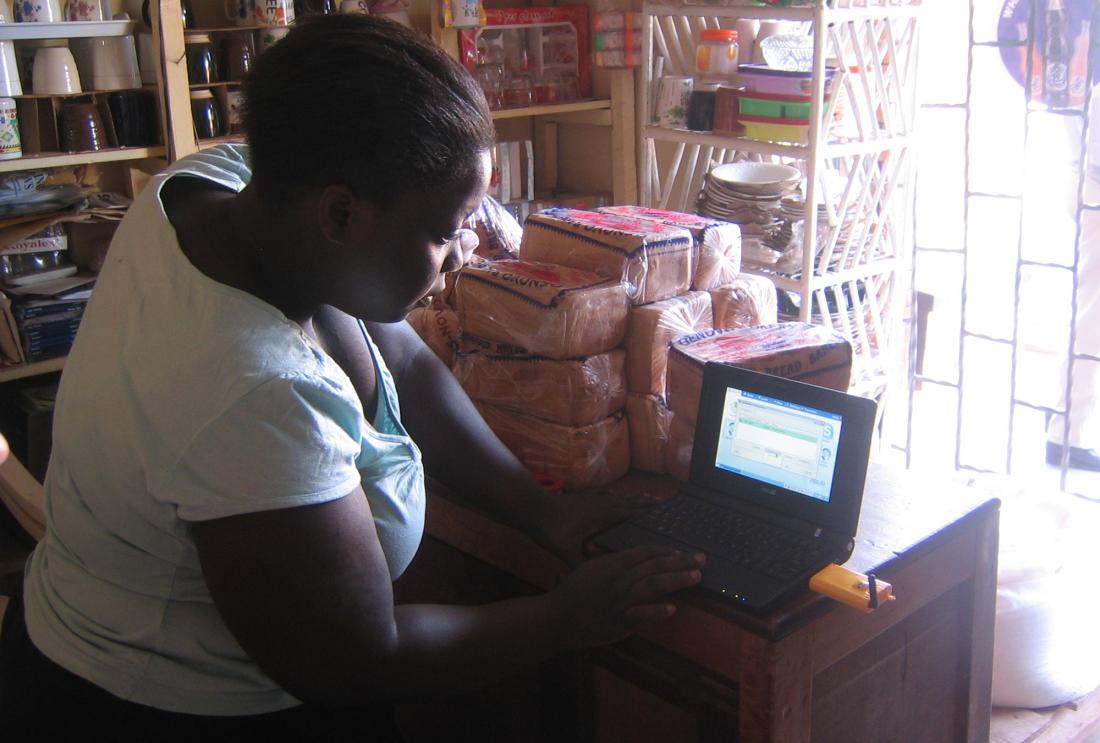The Impact of Entrepreneurship Training for Women in Uganda
- Entrepreneurs
- Small and medium enterprises
- Women and girls
- Earnings and income
- Women’s/girls’ decision-making
- Business skills training
- Coaching and mentoring
- Empowerment training
- Tailored instruction
In low- and middle-income countries, small and medium enterprises (SMEs) account for a large part of the economy, but they often struggle to expand in the face of constraints, such as a lack of managerial skills. In Uganda, researchers evaluated the effect of standardized business skills training on business performance as compared to more personalized mentoring services.
الموضوع الأساسي
Small and medium enterprises (SMEs) are often viewed as potential engines for innovation, employment, and social mobility, and promoted as vehicles for economic growth. In many low- and middle-income countries, SMEs make up a particularly large part of the economy, yet data suggest that very few grow into larger businesses. If SMEs have such growth potential, what prevents them from expanding?
Human capital constraints may be key, especially if having adequate managerial skills in place is a prerequisite for accessing other resources, such as financial services. Many "business development services" and "entrepreneurship training" programs target SMEs in low- and middle-income countries, but there is almost no systematic evidence on the effectiveness of such programs. This project evaluated a training and mentoring program in Uganda aimed at helping female entrepreneurs develop the skills they need to run thriving businesses. The objective of the evaluation was to measure the impact of an increase in "managerial human capital" on business outcomes for entrepreneurs who receive training, as well as the spillover impact of such an intervention on competing and collaborating businesses. It also compared the relative cost-effectiveness of skill transfer through a more time- and resource-intensive training approach, versus a less intensive one.
سياق التقييم
TechnoServe, an international non-profit business development organization, implements a business training program called Women Mean Business (WMB) in four cities in Central Uganda Kampala, Entebbe, Jinja, and Mukono. Since 2008, almost 600 women have received business skills training through the WMB program. A market survey of SMEs in these four cities, conducted by IPA, revealed that approximately 54 percent of all businesses interviewed were owned or managed by women. However, owners of small businesses—and especially female entrepreneurs—may lack management skills and information about how to access financial services and other resources, limiting their ability to improve and grow their businesses. For example, although women own nearly 40 percent of businesses with registered premises, they obtain only 9 percent of all credit disbursed1 . The WMB program aims to provide female entrepreneurs with tools and training to better manage and grow their businesses.

معلومات تفصيلية عن التدخل
Eligible entrepreneurs were randomly assigned to one of three groups: In Depth training, Light Touch training, or a comparison group. Program activities for both tracks took place over the course of a year, and were implemented by TechnoServe staff or outside consultants and mentors trained and supervised by TechnoServe.
In the first year of the program, Light Touch track participants attended classroom training sessions on topics such as financial management, sales/marketing, customer relations, and human resource management. Each topic was covered in a two-day training session, with one session each month. Participants were also placed in sector working groups (e.g. manufacturing, retail, services), which met for additional, targeted training lessons and field activities. In the second year of the program, refresher training sessions were held to provide more clarity on the topics and address any specific issues faced by the participating businesses. Finally, Light Touch participants received individual visits from a TechnoServe counselor to discuss any business-specific challenges they face.
Women in the In Depth track received all of the services offered to the Light Touch group, and were also matched with student coaches selected from local business schools. These coaches worked with the women for eight weeks in the first year of the program to develop a five year business plan. In the second year, the women were matched one-on-one with mentors, who they worked with over three months to implement the business plan and adopt the lessons from the various training activities.
Before the start of the WMB program, a baseline survey gathered information on each business's operations, products and sales, employment, and finances, as well as background information on the owner/manager. Eight to twelve rolling follow-ups surveys were conducted over the course of two years to gather data on business performance during and after the one-year WMB training program. A final endline survey was conducted two years after the baseline survey and one year after the WMB program ends.
النتائج والدروس المستفادة بشأن السياسات
Results forthcoming.